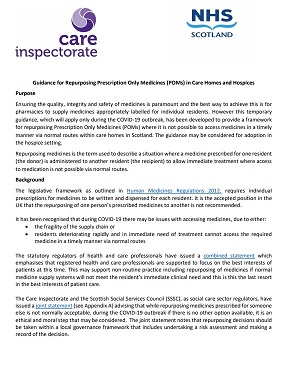These are unprecedented times. As social service workers we are coming face to face with many challenges, both through our own experiences and through the experiences of people we provide support for.
It is important to be honest with ourselves about the challenges we face and the renewed importance of ensuring we deliver care, compassionately and with kindness keeping the person at the centre of everything we do.
The Health and Social Care Standards set out what we should expect when using health, social care or social work services in Scotland. They ensure individuals are treated with respect and dignity, and that the basic human rights we are all entitled to are upheld. Watch the video below to learn more.
Health and Social Care Standards
At the core of self-directed support is the principle that people are given the opportunity to take control of their lives and the support that they may need to do this. One important aspect of this is being empowered to make decisions about medication.
Assessing the type of support someone will have in their care plan will cover a person’s understanding of their medicines, as well as motivation and physical ability to take them. It should also look at any help needed with ordering and collecting prescriptions. An assessment of a person’s capabilities may show that they do not need any help from you or may need a reminder to take their medicine. The pharmacist can also provide tools to promote and support someone’s independence, such as easy open bottles.
When you support an individual with medication, you are accountable for your actions, so you need to be very clear that the reasons for giving medication is to meet their needs.



